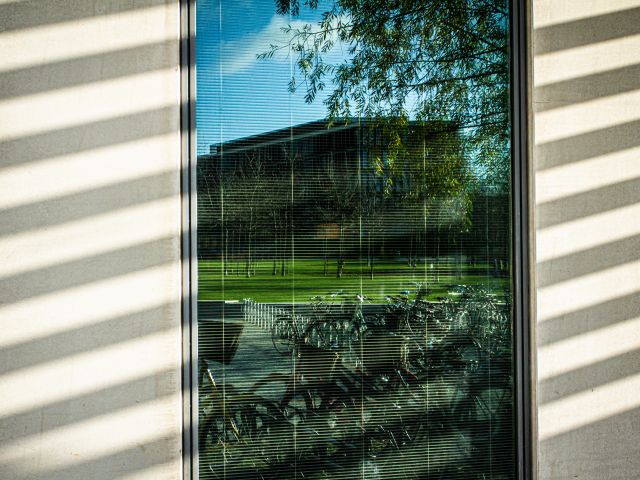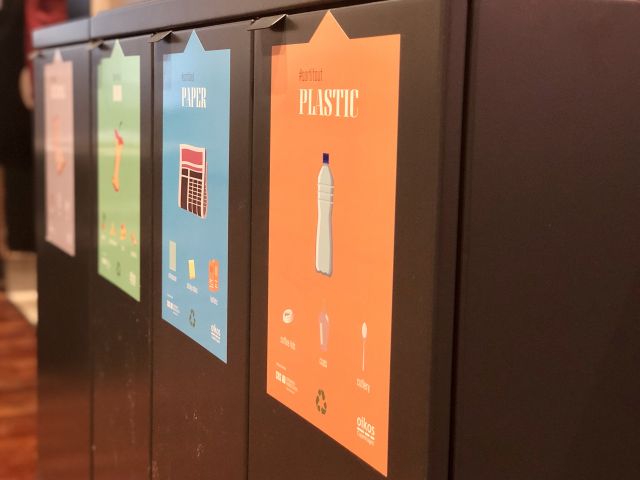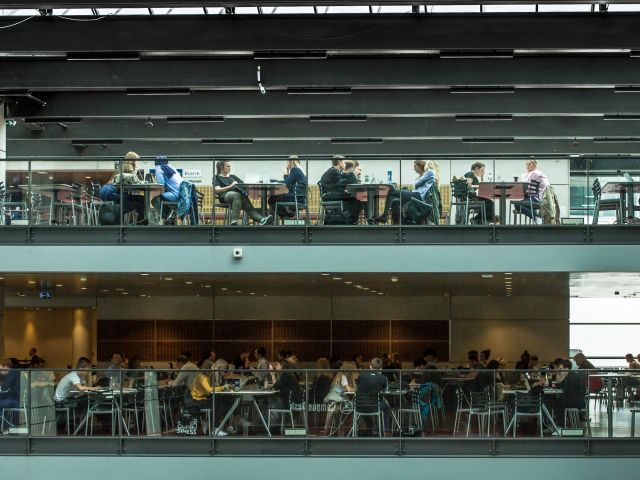CBS joins digital forces with computer scientists to form new research center worth millions

(Illustration: Giphy.com)
“It’s a major step for collaborations between different environments dealing with digital technologies. Instead of competing against each other, we partner up,” says Head of the Department of Digitalization, Helle Zinner Henriksen.
Digital Research Center Denmark (DIREC) is a new collaboration between The Alexandra Institute and seven Danish universities, including CBS.
The center has received a historical foundation grant of DKK 100 million from Innovation Fund Denmark, and the purpose is to expand the capacity of research and education within the field of digital technology in Denmark.
“It’s a major step for collaborations between different environments dealing with digital technologies. Instead of competing against each other, we partner up, combine and pool the strengths from each of our individual fields of competence,” says Head of the Department of Digitalization, Helle Zinner Henriksen and adds:
“Depending on the specific projects we collaborate with companies from the industry we’re working with to bring their experiences to the table.”
She is one of the seven department heads who issued a grant application that paid out the tidy sum of DKK 100 million. That is the largest individual grant the Innovation Fund Denmark has ever awarded.
Besides CBS, the other institute partners are the Technical University of Denmark, University of Copenhagen, IT University of Copenhagen, University of Southern Denmark, Aarhus University and Aalborg University.
However, what makes CBS stand out from the crowd, Helle Zinner Henriksen explains, is the business perspective, as all the other partners are institutes of Computer Science at their respective universities.
And this specific blend of computer science and business competences might be the answer to the prayers of the business community and the public sector.
“We can improve even further”
Over the course of the next five years, DIREC will be working to extend its capacity within education and research by focusing on digital technologies, which has long been requested.
“Denmark is already doing well at digitalization and technology on many levels, but we can improve even further in this field,” Helle Zinner Henriksen says and continues:
“Every year, the Confederation of Danish Industry (DI) highlights the lack of IT specialists. At the same time, there is demand for increased digital research and education.
“Therefore, to ensure Denmark’s position as a frontrunner in relation to new technologies such as big data, AI and Internet of Things, we want to create an expanded environment where we can educate more people with IT competences and become wiser in the area through joint digital research.”
In a press release issued in November, The Alexandra Institute backs up this argument and mentions the pandemic crisis as well as the green transition as motivating forces for the new research center.
“During the COVID-19 crisis, we’ve seen that digital technologies have been utterly crucial for succeeding in keeping large parts of society running despite the, more or less, total lockdown,” the institute states and goes on:
“In addition, digital technologies will be pivotal tools if we are to succeed with the green transition. Therefore, it’s important for Danish companies and the public sector that Denmark has access to highly qualified IT specialists and research on digital technologies,” they write (loosely translated from Danish).
A variety of activities
Overall, DIREC’s activities can be compartmentalized into three areas: research focusing on advanced technologies along with cross-cutting perspectives related to business and ethics, educational activities, and finally network activities including entrepreneurship and start-up initiatives.
As for the latter, Helle Zinner Henriksen explains that through different workstreams, DIREC has explicit Key Performance Indicators (KPI’s) related to start-ups, innovation and entrepreneurship.
On the educational side, the center wishes to create educational activities at master’s and PhD levels in digital technologies for building knowledge and research capacity that address Danish needs, with paths for capacity exploitation. Furthermore, it aims to create attractive international profiles to foster inbound PhD recruitment.
However, in terms of research and innovation, DIREC’s activities can be divided into three subcategories: science and technology projects, bridge projects and explore projects. Currently, CBS is involved in a specific AI bridge project.
“A bridge project,” Helle Zinner Henriksen says, “is a collaborative project between universities and companies. At present CBS is part of a project with researchers from Department of Computer Science at University of Copenhagen.
“The project is about applying AI and blockchain technologies to complex business processes, and the aim is to develop methods and tools that enable industry to develop new efficient solutions for exploiting the huge amount of business data generated by enterprise and blockchain systems,” she explains and goes on:
“In concrete terms, this will be achieved by bridging industry and academia via three innovative, complementary industrial partners and researchers across the disciplines of AI, software engineering and business intelligence from three DIREC partner universities.”
The AI project will run for 3.5 years, but every project has its own specific time frame. Some will be shorter than others, which makes room for new projects to arrive along the way.
Nevertheless, the journey has just begun and Helle Zinner Henriksen is looking forward to the next five years.
“It’s very exciting to see research environments be brought together in this manner. I think it’s unique!”







































































































































Comments